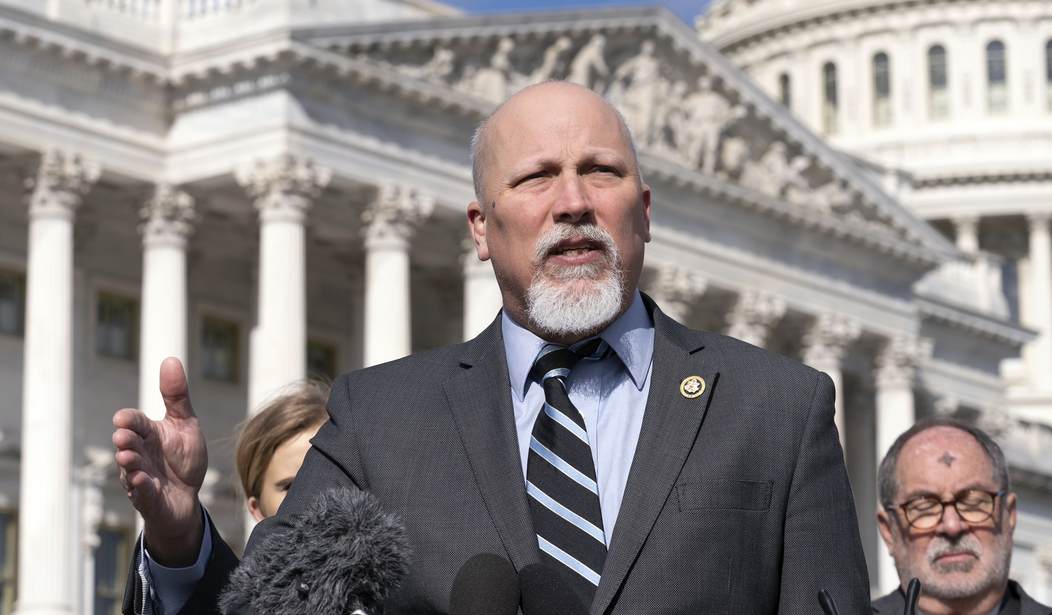A newly-introduced bill in Congress aims to protect exotic game ranches in Texas and elsewhere from radical animal rights organizations.
Rep. Chip Roy (R-TX) exclusively shared with Townhall.com details about his forthcoming legislation, the Exotic Hoofstock Reform Act, aimed at protecting an existing Endangered Species Act (ESA) exemption that permits the hunting of privately owned exotic animals.
"It is no secret that radical animal welfare groups have long been pushing the government to overregulate hunting. Exotic game ranches in Texas have proven they are more capable and effective at preserving the future of exotic species than the federal government is," Rep. Roy said in a statement to Townhall.com. "The government needs to stop regulating privately owned, foreign species and allow our great ranchers to do what they do best and preserve wildlife in ways they see fit."
Rep. August Pfluger (R-TX), a co-sponsor of the bill, also supplied a statement to Townhall.com, writing, "Texans know Texas best, and I have full confidence in the effectiveness of local conservation efforts over one-size-fits-all mandates that do not account for the region’s unique needs. This is why I am proud to lead this commonsense legislation with my good friend and fellow Texan Rep. Chip Roy to protect exotic game ranches in Texas and across the country who play an important role in preserving the populations of these animals."
If Rep. Roy’s bill were to advance, it would support exotic game ranches by delisting the following non-native hoofstock species: barasingha, red lechwe, Arabian oryx, Eld’s deer, Grevy’s zebra, gaur, banteng, and markhor.
This would not be the first time near-extinct exotic species thriving on private U.S. ranches would be exempted by the ESA. Previously, three other exotic species - the Tres Amigos (scimitar-horned oryx, dama gazelle, and addax antelope) - received an ESA exemption in the 2014 omnibus bill signed into law by then-President Barack Obama.
Recommended
Section 10(a)(1)(A) of the Endangered Species Act (ESA) authorizes the USFWS to issue permits for "otherwise prohibited activities in order to enhance the propagation or survival of the affected species"–namely the management of exotic species in Texas, Louisiana, Arkansas, and elsewhere.
In Texas, there are 5,000 exotic hunting ranches that generate $2 billion annually in revenue. Only a fifth of these ranches, however, offer commercial hunting. And there’s sufficient evidence that this unique practice does lead to the bolstering of imperiled species.
A July 2018 Good Morning America report notes USFWS typically issues permits to ranches that dedicate "a percentage of income derived from the hunting must then be donated for conservation of the species and/or its habitat." Their report claimed 10% of each hunt goes back to conservation efforts.
In a 2019 editorial, the Dallas Morning News admitted Texas exotic ranches are helping to bolster near-extinct and threatened African species.
"All around the world, precious native fauna are going extinct," the editorial board wrote at the time. "But our state is now home to more than 5,000 ranches breeding non-native animals. We are becoming, both by accident and intention, a potential safe haven for species hunted or otherwise losing habitat to the point of extinction in their home countries."
The publication added, "After being brought by private individuals a few years ago, the scimitar-horned oryx population in Texas grew to about 15,000, the addax antelope to about 9,000 and the dama gazelle to about 2,500. Not only did this provide an economic boost in the ranching industry, but many of these animals were sent back to their native lands of Senegal, Chad and Tunisia, where they were on the verge of extinction."
Groups like Exotic Wildlife Association (EWA), the trade association representing this industry, exist to educate media, policymakers, and stakeholders about this side of hunting. The organization’s goals are as follows: protecting property rights of landowners to raise indigenous and non-indigenous hoofstock animals, promote "sustainable utilization” of wildlife, and promote the notion of “conservation through commerce."
"Things that have value have a future in this world. Without a value, these animals will disappear," Charly Seale, EWA’s executive director, told NRA Hunters’ Leadership Forum in 2021.
Seale added, "We’re a conservation group, not a hunting group, but we promote hunting as a management tool."
I have driven by private Texas ranches that have zebras, red stag, and Rocky Mountain elk that are commonly known as "high-fence" hunting operations. While this form of hunting appears controversial on the surface, it’s sufficiently backed by wildlife science and can accord with the North American Model of Wildlife Conservation as hunting native big and small game does.
If private U.S. conservation efforts like this can restore near-threatened or extinct exotic species, it’s far more preferable than the status quo.

























Join the conversation as a VIP Member